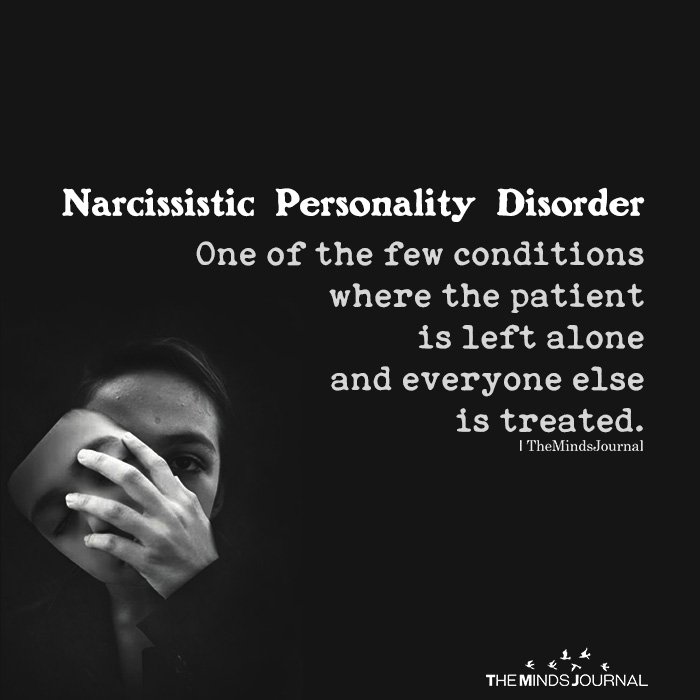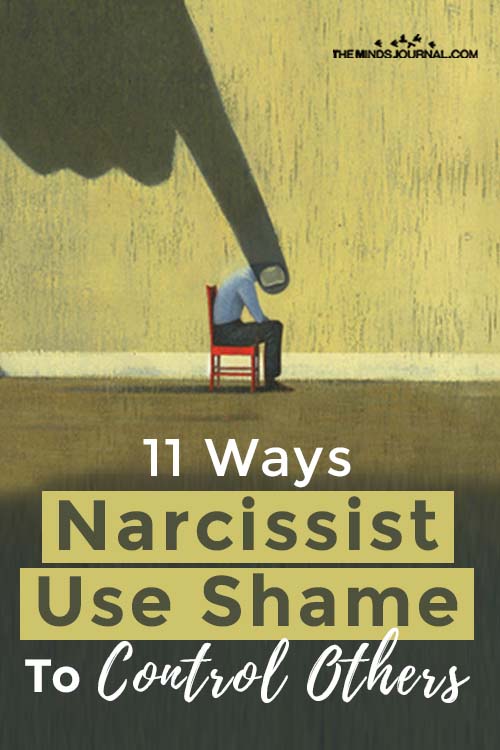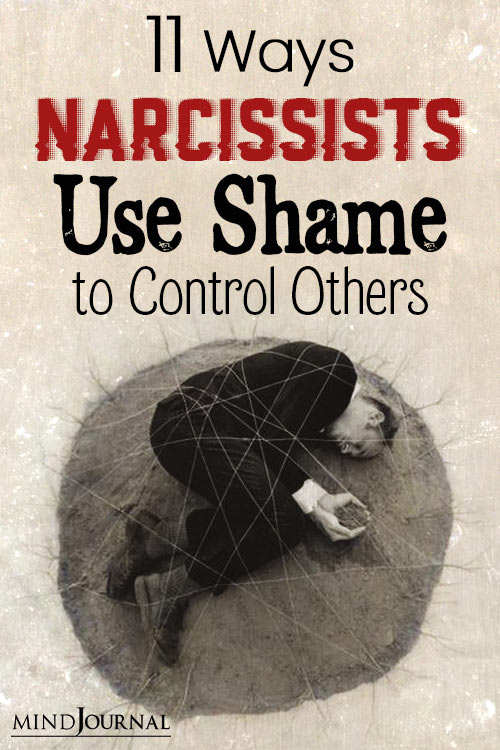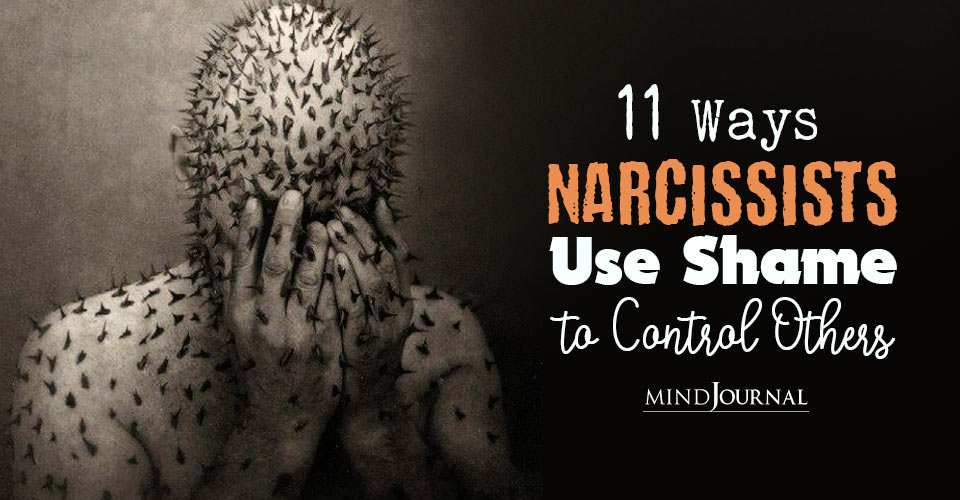A weakness of a narcissist is their extreme hatred of being embarrassed. There is nothing worse for them than having someone point out even the slightest fault. Ironically, they have no problem openly doing this to others; narcissists use shame to manipulate and control others, without even a slight bit of hesitation.
This method of casting shame allows them to feel superior while minimizing any impact the other person might have. It also serves as a way of discounting any future comments the other person may use to embarrass the narcissist. Basically, they are beating the other person to the first punch.
In order to avoid the first punch, a person needs to understand what it looks like, and how narcissists use shame to control you.
Related: The 6 Types Of Narcissists And How To Spot And Cope Each One Of Them
11 Ways Narcissists Use Shame to Control Others

1) Historical Revisionism.
A narcissist will retell another person’s story adding their own flare of additional shame. This can be done in front of others or privately.
It usually happens after the other person has achieved some level of accomplishment. The narcissist will state that they are only trying to keep the other person humble but in reality, they are trying to humiliate.
2) Confidence Breaking.
Narcissists love to gather information about a person and store it away for later abuse. They use their charm to entice a person to share confidential details, especially ones that caused the other person embarrassment.
Once gathered the narcissist uses the story to keep the other person in check and constantly worried about when the information will come out.
Related: The Untold Story Behind A Narcissist’s Projection
3) Exaggerating Faults.
No one is perfect except for the narcissist. The narcissist is very good at identifying the faults of others and even better at passively aggressively commenting on them.
This is a way of putting the other person ‘in their place.’ When confronted, they often say, “I was only joking,” or that person “can’t take a joke.”
4) Victim Card.
Narcissists are talented at exasperating others and then using their reaction as justification for becoming the real victim. Regardless of how hard the narcissist incited the other person, the angry reaction to the provocation is viewed as shameful.
The other person who usually feels bad by their reaction, allows the narcissist to play the victim card, and thereby surrenders control to the narcissist.

5) Blame Shifting.
Whenever something goes wrong, the narcissist shifts all of the blame on the other person. The other person who may have done one thing wrong, allows the narcissist to dump more than their fair share of the responsibility.
Related: 5 Types of Narcissistic Blame Shifting
6) Baby Talk.
In any narcissistic relationship, the narcissist wants to be seen as the adult and the other person as the child. This belittlement is done in several condescending ways such as literally talking down, calling the other person immature, and saying the other person needs to grow up.
The implication is that the narcissist is more mature and has developed beyond the level of the other person.
7) Religious Guilt.
It doesn’t matter what the religion of the narcissist or the other person is. In every religion, there are a set of standards and expectations. The narcissist will use the other person’s religious beliefs to guilt them into acting a certain way. They might even go as far to say, “God told me you need to…”
8) Offensive Play.
The narcissist will use personal attacks to put the other person on the defense. The other person will get so caught up in defending their name or character that they will miss the next attack. “Look how defensive you are, you must have done something wrong,” the narcissist will say.
This is a checkmate position because the other person has nowhere to go. Offensive play is one of the most horrible ways narcissists use shame to control others.
9) Talking Above.
Instead of talking down (baby talk), the narcissist will talk over the other person’s knowledge level. Even if the other person is more intelligent, the narcissist will talk in circles with an air of authority to force the other person into an inferior position.
They will use sophisticated vocabulary, physical posturing such as looking down at the other person, and embellishment of details to disguise the real point of shaming the other person.
Related: 10 Interesting Facts That Will Help You Understand Narcissists Better
10) Comparing Accomplishments.
It doesn’t matter what the other person has accomplished, the narcissist did it first, better, and more efficiently. By outperforming the other person, the narcissist minimizes the other person’s accomplishments in comparison to their own.
This produces an ‘I can never be good enough,’ feeling in the other person.

11) First Impression.
A narcissist is very aware of how they look and appear to others. Frequently they are dressed in designer clothing with immaculate grooming. Not a hair is ever out of place.
This is not just for the narcissist; rather their perfectionistic appearance is used to demean others. Comments like, “They don’t take care of themselves,” or “It doesn’t take a lot of effort to look better” are typical.
When a person can see a punch coming, it is easier to dodge. Resist the temptation to attack first with a narcissist that will only intensify their reaction. Instead, deflect and distract to avoid becoming a target.
Want to know more about how narcissists use shame to control you? Check this video out below!
Written By Christine Hammond Originally Appeared On Psych Central Printed with permission from the author














Leave a Reply